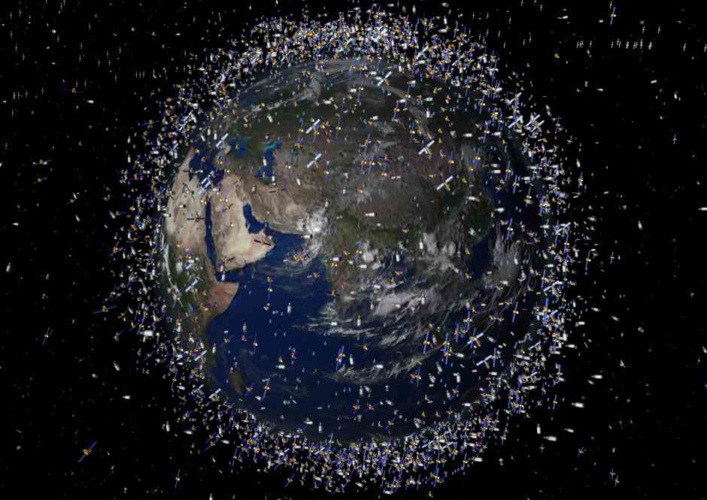
Fujitsu’s prototype – created in collaboration with Amazon Web Services (AWS), Astroscale UK, and Glasgow University – will improve mission planning so that a single spacecraft can select which pieces of space debris to remove in one mission, and at a much faster rate than is currently possible.
By deciding which debris is collected and when, Fujitsu’s quantum-inspired Digital Annealer is claimed to optimise the mission plan to determine the minimum-fuel and minimum-time required to bring inoperable spacecrafts or satellites safely back to the disposal orbit. Finding the optimal route to collect the space debris is expected to save time and cost during the mission planning phase, which will improve the commercial viability of removing space debris.
Astroscale launches space debris removal mission
UK announces £1m funding tackle space debris
In a statement, Ellen Devereux, Digital Annealer consultant at Fujitsu UK & Ireland, said: “With the UK Space Agency’s backing, along with Astroscale UK, AWS and Glasgow University, we’ve designed a solution to optimise the mission planning of a servicing craft before it is sent into space – meaning organisations like Astroscale UK can pick up more debris, more quickly than ever before.”
With 2,350 non-working satellites currently in orbit, and more than 28,000 pieces of debris being tracked by Space Surveillance networks, Fujitsu’s technology has the potential to grow the UK’s market share in the space sector.
"Monitoring hazardous space objects is vital for the protection of services we all rely on - from communications devices to satellite navigation,” said Jacob Geer, head of space surveillance and tracking, UK Space Agency. “This project is one of the first examples of Quantum-inspired computing working with artificial intelligence to solve the problems space debris causes, but it's unlikely to be the last. The UK is committed to ensuring the sustainability of space, and Fujitsu, working with Astroscale UK, Glasgow University and AWS, have demonstrated the real-world significance of keeping space uncluttered, assuring its accessibility for future generations.”
The research has been carried out as part of the UK Space Agency grant “Advancing Research into Space Surveillance and Tracking”. The project, which was developed over six months, utilises Artificial Neural Network (ANN)-based rapid trajectory design algorithms, developed by Glasgow University, alongside Fujitsu’s Digital Annealer and Quantum Inspired Optimisation Services to solve some of the main optimisation problems associated with ADR (Active Debris Removal) mission planning design.
AWS provided the Cloud and AI and ML tools and services to support the project. The Amazon Sagemaker toolset was used to develop the ANNs that predict the costs of orbital transfers in a fraction of the time it would take to calculate them in full. Astroscale UK, the world’s first commercial company to start a demonstration mission to remove debris from the lower Earth orbit, is providing the end-use case as a representative user of multi-target mission optimisation.




Glasgow trial explores AR cues for autonomous road safety
They've ploughed into a few vulnerable road users in the past. Making that less likely will make it spectacularly easy to stop the traffic for...